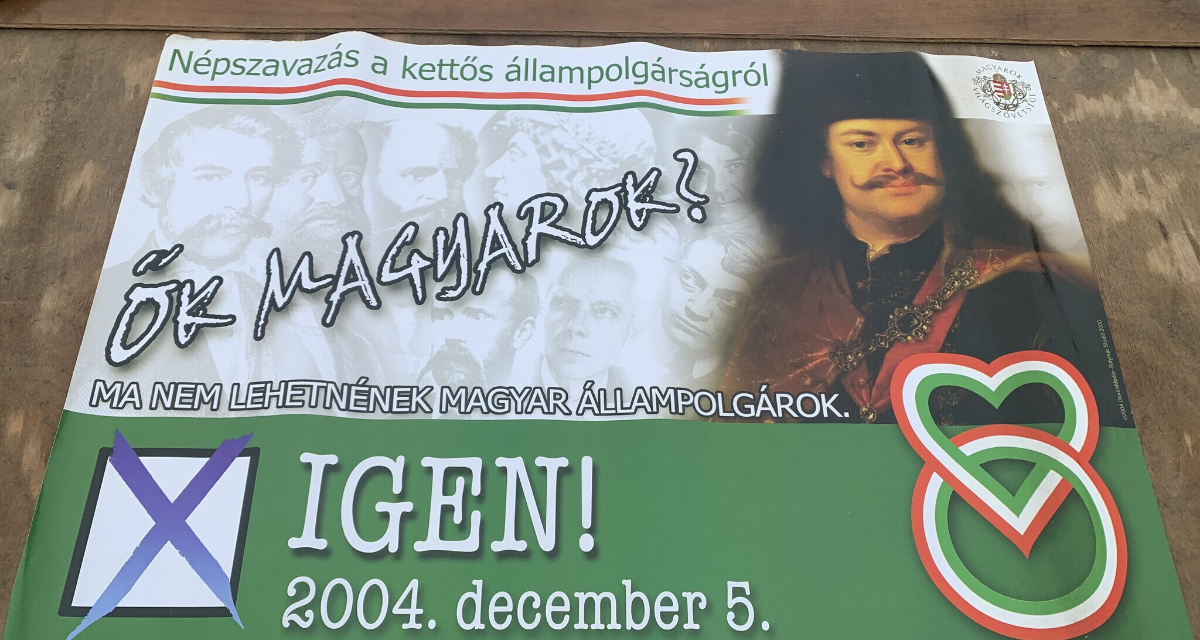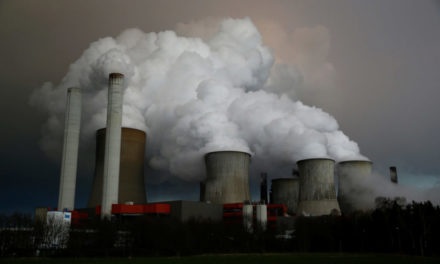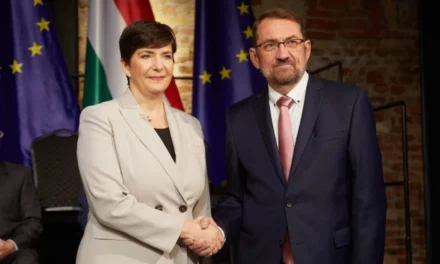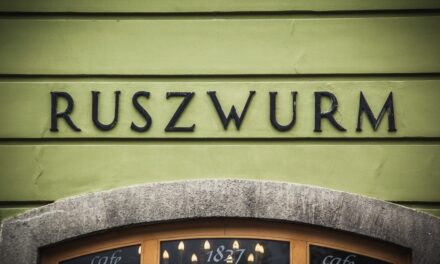In 2010, Fidesz-KDNP healed the mental wounds caused by the referendum.
The biggest historical challenge facing the political elite of the Hungarian people, who were torn apart by the Trianon Peace, is what to do with the nation's fragmentation, with the absurd state of being that every fourth or fifth Hungarian lives under the rule of a foreign, in many cases downright hostile, state.
In the course of history, the most diverse responses to this problem have been made, from the revision efforts of the Horthy era to the amputation policy of the communist period, which not only neglected to support Hungarians stranded outside the borders until the mid-eighties, but also tried to erase the fact of the existence of these communities from the consciousness of the younger generations.
The leader of the government that came to power in 1998, Viktor Orbán, indicated at one of the first press conferences what the principle basis for his cabinet was in this matter: the borders of the Hungarian nation do not coincide with the borders of Hungary, and the government he leads will be the government of the nation. Based on this idea, he announced the program of cross-border Hungarian national unification,
in the spirit of which, the Magyar Permanent Conference was established in 1999 as an organization uniting the remaining Hungarians in their ancestral land, and the LXII of 2001 was adopted. law on Hungarians living in neighboring states, popularly known as the status law, which for the first time created a legal relationship between individuals belonging to the separated parts of the nation and the mother state.
After more than a quarter of a century has passed, I can perhaps describe that at the closed political consultation organized on the occasion of the Tusványos camp following the victorious election in 1998 - at which, in addition to the Prime Minister, the leaders of the autonomist, national conservative RMDSZ platform called Reform Tömörülés, the then president and honorary president of the RMDSZ sa Fidesz politicians took part - Viktor Orbán identified the expansion of Hungarian citizenship as a desirable goal for all for Hungarians who require it. (This is denoted by the colloquial term "dual citizenship", which is not entirely accurate, as Hungarian can even be the third citizenship of someone who, for example, settled in the West during the Ceausescu era, obtained citizenship, and then returned home.) that not long after, as I mentioned, the government started on the path of the status law, because - unlike the amendment of the citizenship law - it did not require qualified for the majority.
Of course, it was known that the support of the left-wing opposition could not be counted on regarding the issue of extending citizenship.
It may be related to the ideological support for the expansion of Hungarian citizenship that, in addition to Pál Schmitt, Viktor Orbán also signed the 2004 referendum initiative of the World Federation of Hungarians, thereby contributing to the resounding success of the signature collection, which, regardless of the initiator, was one of the most significant, truly civil national coalitions after the regime change .
Various non-political organizations and the multitude of civic groups founded two years earlier, following the call of Viktor Orbán, did everything for the common cause, there was such a spiritual uplift at the community level, the like of which we could rarely experience.
The referendum, which has its 20th anniversary today, has been a controversial historical event ever since. Many believe that it would have been better if the lack of interest of the majority of the population in Inner Hungary had not been revealed. (The participation rate did not even reach forty percent.)
It was also shocking to find out that there were almost as many people who did not vote to indicate that they did not want to give back to their compatriots what the iron coercion of history deprived them of, than those who did what was most natural in such a situation: they participated in the voting, and a yes vote was cast.
Most of the separated Hungarians experienced all of this as being rejected by the motherland.
An unjustifiable, limited and harmful manifestation of this disappointment was the sign in a pub in Székely that Hungarian citizens are not served. It doesn't matter that it was a desperate reaction to a tragic experience, because any gesture that generates antagonism between Hungarians and Hungarians along the lines of territorial affiliation, citizenship or belonging to a regional unit, unwittingly fulfills Trianon. (In addition, those who make it to Székelyudvarhely at all probably put the X in the right place during the plebiscite.)
In those depressing days of December 2004, people from whom we had never heard a word about politics and public life before expressed their shock at the result. Innumerable publications, several heart-grabbing poems were born from occasion-born poets and famous pen-twirlers alike. It is no exaggeration to say that the result shocked Hungarians who think about the nation.
As for the issue that it would have been better if no snapshot was taken of the state of national self-consciousness of the citizens of Inner Hungary, it is a serious dilemma that
which is better: to cover up the problem or to be aware of it and try to fix it?
The referendum showed in a flash the impact of the Kádár-era mind destruction and Ballib's anti-national propaganda. It will remain as an eternal national political reminder that the left openly and clearly turned against the idea of all-Hungarianism. In a convergent way with the spiritual guidance of the SZDSZ with a mournful memory
the Gyurcsány government incited false propaganda against the separated parts of the nation, projecting that the extension of Hungarian citizenship would destroy the Hungarian social care system.
This was essentially a repackaged version of the 2002 MSZP campaign with twenty-three million workers. (This unclassifiable and completely unfounded mood creation is also linked to Ferenc Gyurcsány, and he even boasts about it in his book On the Road.)
Three facts about this disgraceful campaign are worth juxtaposing. The first is the actual subject of the referendum. Let's recall how the question was worded!
Do you want the Parliament to enact a law so that a non-Hungarian citizen who declares himself to be of Hungarian nationality, does not live in Hungary, and whose Hungarian nationality was declared Hungarian in the LXII of 2001, can receive Hungarian citizenship through preferential naturalization? TV. Is it verified with a "Hungarian identity card" according to § 19 or in another way specified in the law to be created?
This had to be answered.
The second is that at the time there was a MSZP-SZDSZ majority in the parliament, so it would have depended on the will of this majority in the event of a referendum success, whether the law to be enacted would affect the Hungarian social welfare system at all, and if so, to what extent. So the whole rant was pure demagoguery, and it appealed to the lowest emotions of the electorate.
And the third is that at the time, the same people complained about the influx of Hungarians from Transylvania, who would allow in the country countless and indiscriminate invaders from the third world who were mostly Muslim, unassimilable, hostile to European culture, and coming with the intention of conquest. The government's black propaganda of the referendum campaign is easily understood by everyone and remains an eternal proof of the left's anti-nationalism.
From another point of view, however, it is a simple fact that the referendum was also beneficial for national politics, since even if it was unsuccessful - because not enough voters went to the polls and the majority of yes votes on the question of extending citizenship was not massive - the yes votes were in the majority.
And this could have provided the basis for the newly elected legislature with a two-thirds Fidesz-KDNP majority to resolve the issue in a hussar-style manner in 2010.
XLIV of 2010. the law on the amendment of the citizenship law was not only the most significant unifying public law act since the change of regime, but also a kind of historical reparation and, not to mention, a remedy for the mental wounds caused by the referendum.
Cover image: It has been twenty years since the referendum on dual citizenship
Source: galeriasavaria.hu













